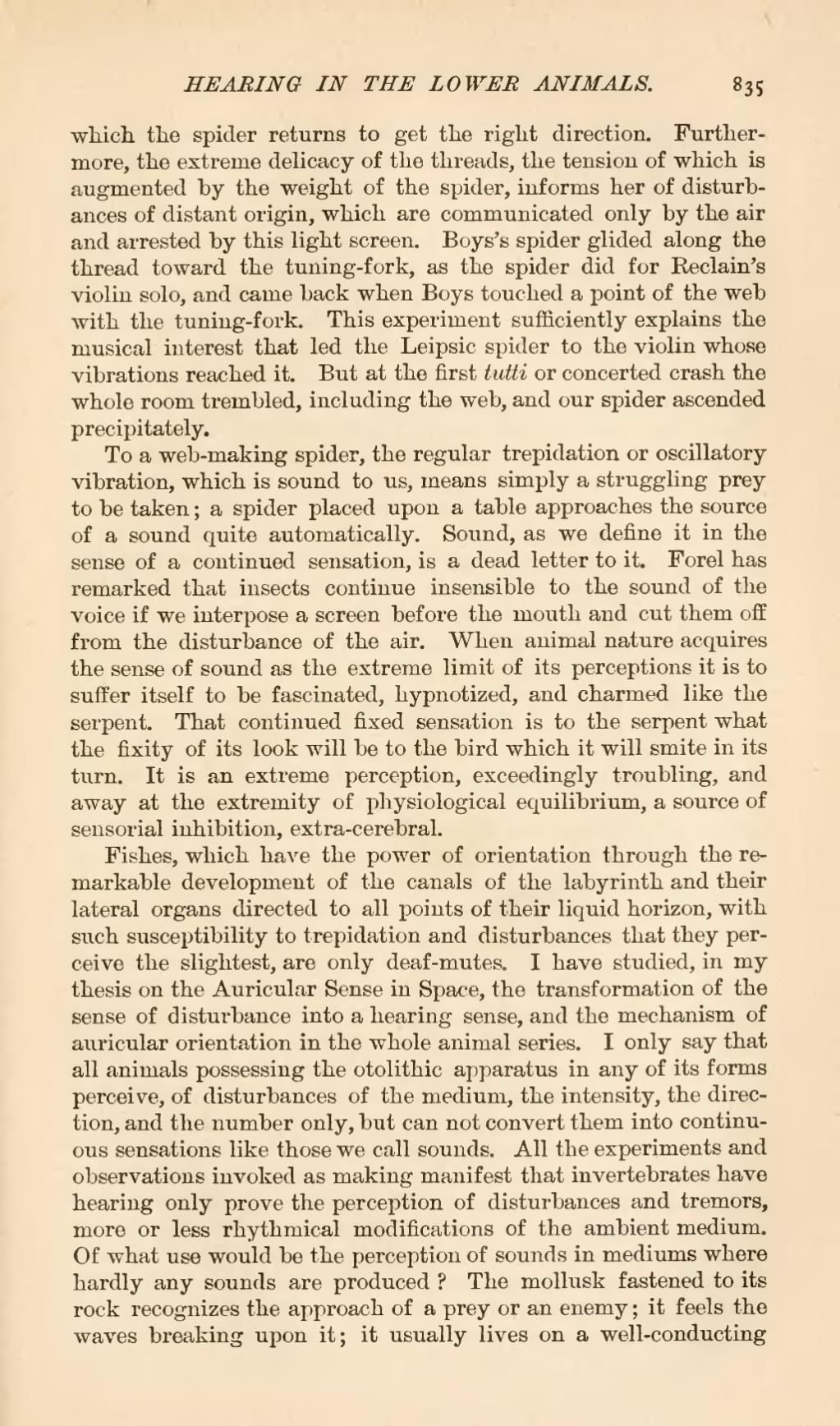which the spider returns to get the right direction. Furthermore, the extreme delicacy of the threads, the tension of which is augmented by the weight of the spider, informs her of disturbances of distant origin, which, are communicated only by the air and arrested by this light screen. Boys's spider glided along the thread toward the tuning-fork, as the spider did for Reclain's violin solo, and came back when Boys touched a point of the web with, the tuning-fork. This experiment sufficiently explains the musical interest that led the Leipsic spider to the violin whose vibrations reached it. But at the first tutti or concerted crash the whole room trembled, including the web, and our spider ascended precipitately.
To a web-making spider, the regular trepidation or oscillatory vibration, which is sound to us, means simply a struggling prey to be taken; a spider placed upon a table approaches the source of a sound quite automatically. Sound, as we define it in the sense of a continued sensation, is a dead letter to it. Forel has remarked that insects continue insensible to the sound of the voice if we interpose a screen before the mouth and cut them off from the disturbance of the air. When animal nature acquires the sense of sound as the extreme limit of its perceptions it is to suffer itself to be fascinated, hypnotized, and charmed like the serpent. That continued fixed sensation is to the serpent what the fixity of its look will be to the bird which it will smite in its turn. It is an extreme perception, exceedingly troubling, and away at the extremity of physiological equilibrium, a source of sensorial inhibition, extra-cerebral.
Fishes, which have the power of orientation through the remarkable development of the canals of the labyrinth and their lateral organs directed to all points of their liquid horizon, with such susceptibility to trepidation and disturbances that they perceive the slightest, are only deaf-mutes. I have studied, in my thesis on the Auricular Sense in Space, the transformation of the sense of disturbance into a hearing sense, and the mechanism of auricular orientation in the whole animal series. I only say that all animals possessing the otolithic apparatus in any of its forms perceive, of disturbances of the medium, the intensity, the direction, and the number only, but can not convert them into continuous sensations like those we call sounds. All the experiments and observations invoked as making manifest that invertebrates have hearing only prove the perception of disturbances and tremors, more or less rhythmical modifications of the ambient medium. Of what use would be the perception of sounds in mediums where hardly any sounds are produced? The mollusk fastened to its rock recognizes the approach of a prey or an enemy; it feels the waves breaking upon it; it usually lives on a well-conducting
